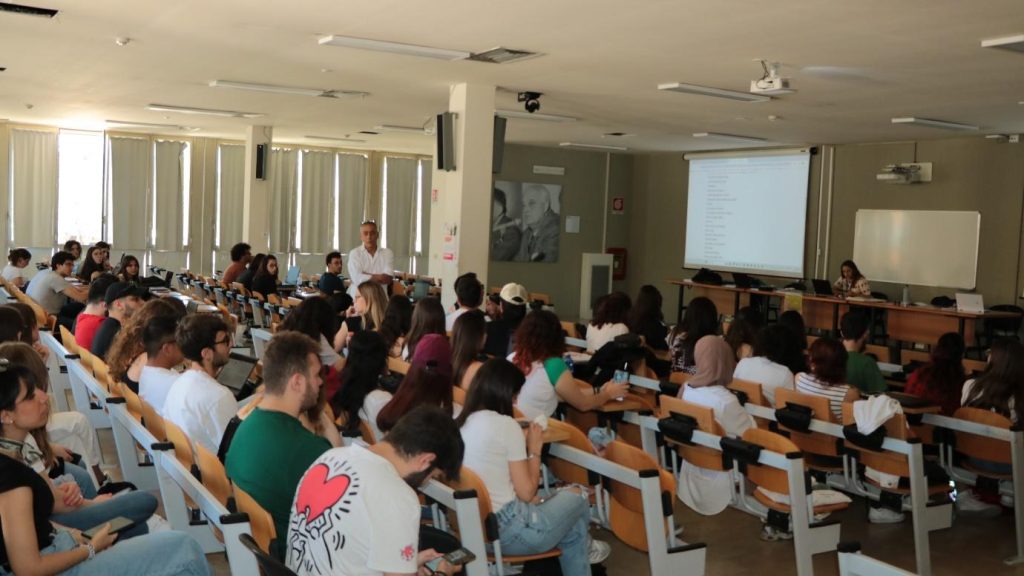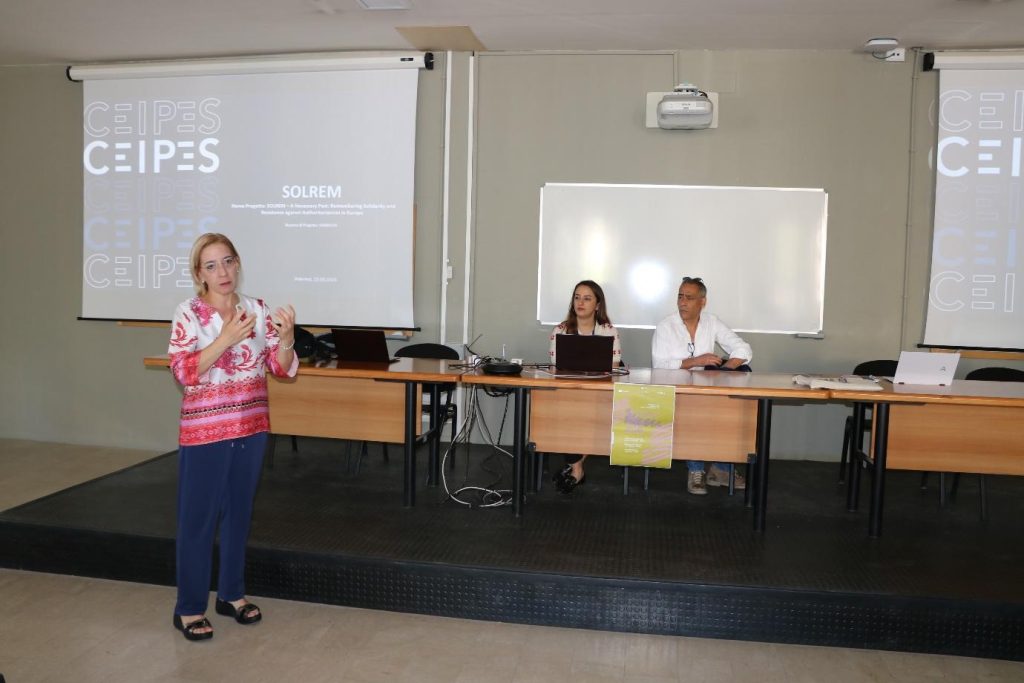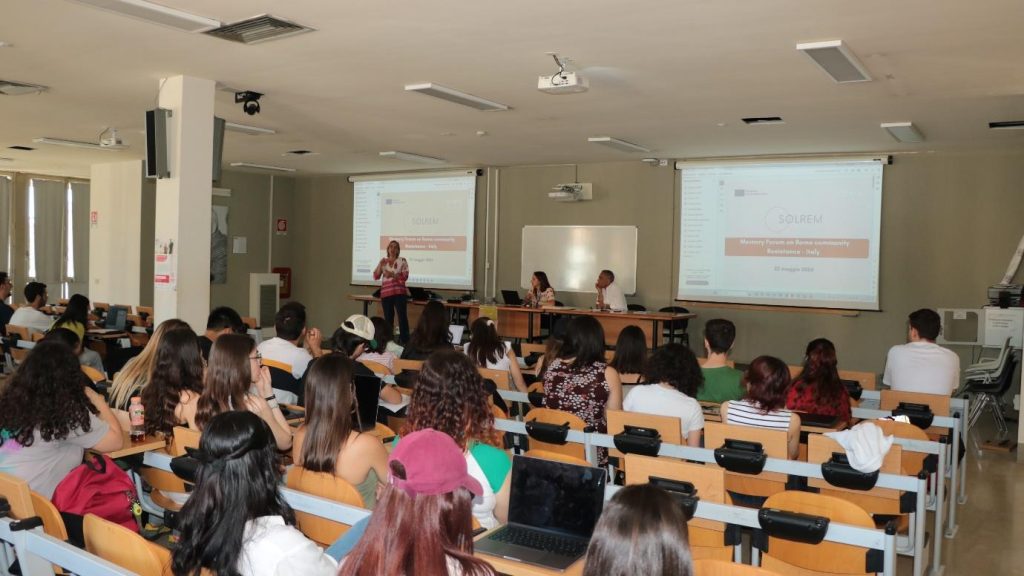Roma Solidarity
22nd of May 2024
Overview
- Francesca Morganella, CEIPES: SOLREM project presentation
- Elisabetta Di Giovanni, antropologhist, UNIPA: Gypsy Phenomenology. Ethnography of a Roma community in Palermo
- Michele Mannoia, sociologist, UNIPA: Gypsies, what strange people! History and problems of an excluded minority
- Q&A
Report
CEIPES conducted the Memory Forum on Roma Resistance on the 22nd of May 2024. This significant event, Deliverable D2.7, part of Work Package 2 (WP2), was held at the University of Palermo Campus, in Viale delle Scienze. The activity starts at 9.30 and finishes at 12.30.
The event reached more than eighty students at the University of Palermo. The forum was dedicated to one of the most resilient communities throughout the centuries, the Roma. The event featured speeches from two esteemed experts in the field: Professor Elisabetta Di Giovanni, an anthropologist, that made ethnographic research, attempting to provide an exhaustive picture of the gypsy phenomenology in Palermo, as an idiographic case, with constant comparative reference to the national context, for a possible nomothetic axiom. In addition, Michele Mannoia, as a sociologist he also made reaserch and publications about the figure of the Gypsy, on how it has been constructed over the centuries, reflecting on the inclusion of the Roma community.



The session began with the project coordinator presenting the activities and results of the SOLREM project to the students. Following this introduction, Professor Mannoia engaged the audience with an interactive speech. He discussed his recent book, “Gypsies, what strange people! History and problems of an excluded minority”, which examines the stereotypes associated with the Roma people. Despite their long-standing presence in European countries, particularly Italy, the Roma community faces persistent stereotypes and issues of social inclusion. Professor Mannoia highlighted how understanding these points and analyzing the motivations behind the difficult relations with the Roma population could be the starting point for overcoming situations of total social marginality. He emphasised the need for institutional responses that address the real needs of the Roma.
Professor Elisabetta Di Giovanni, an anthropologist with extensive field research and publications on Roma identity and culture, also contributed significantly to the forum. She discussed her work on how design can serve as a tool of resistance in the construction of Roma identity and representation. Her insights provided a deeper understanding of the cultural and social dynamics within the Roma community.
The event offered a valuable opportunity for students and university professors to learn more about the Roma people and their cultural contributions. This included a discussion on the Italian songwriter Fabrizio De André, who in his album “Anime Salve” featured the song “Khorakhanè (A Forza Di Essere Vento),” which was played and analyzed during the forum.
The forum concluded with a comprehensive discussion, allowing participants to reflect on the documentary and the overarching themes of the event. This final dialogue underscored the critical importance of preserving the memory of antifascist resistance and the enduring lessons it imparts to contemporary society. The interactive format encouraged deep engagement with the subject matter, fostering a shared commitment to addressing social marginalisation and promoting inclusivity.
